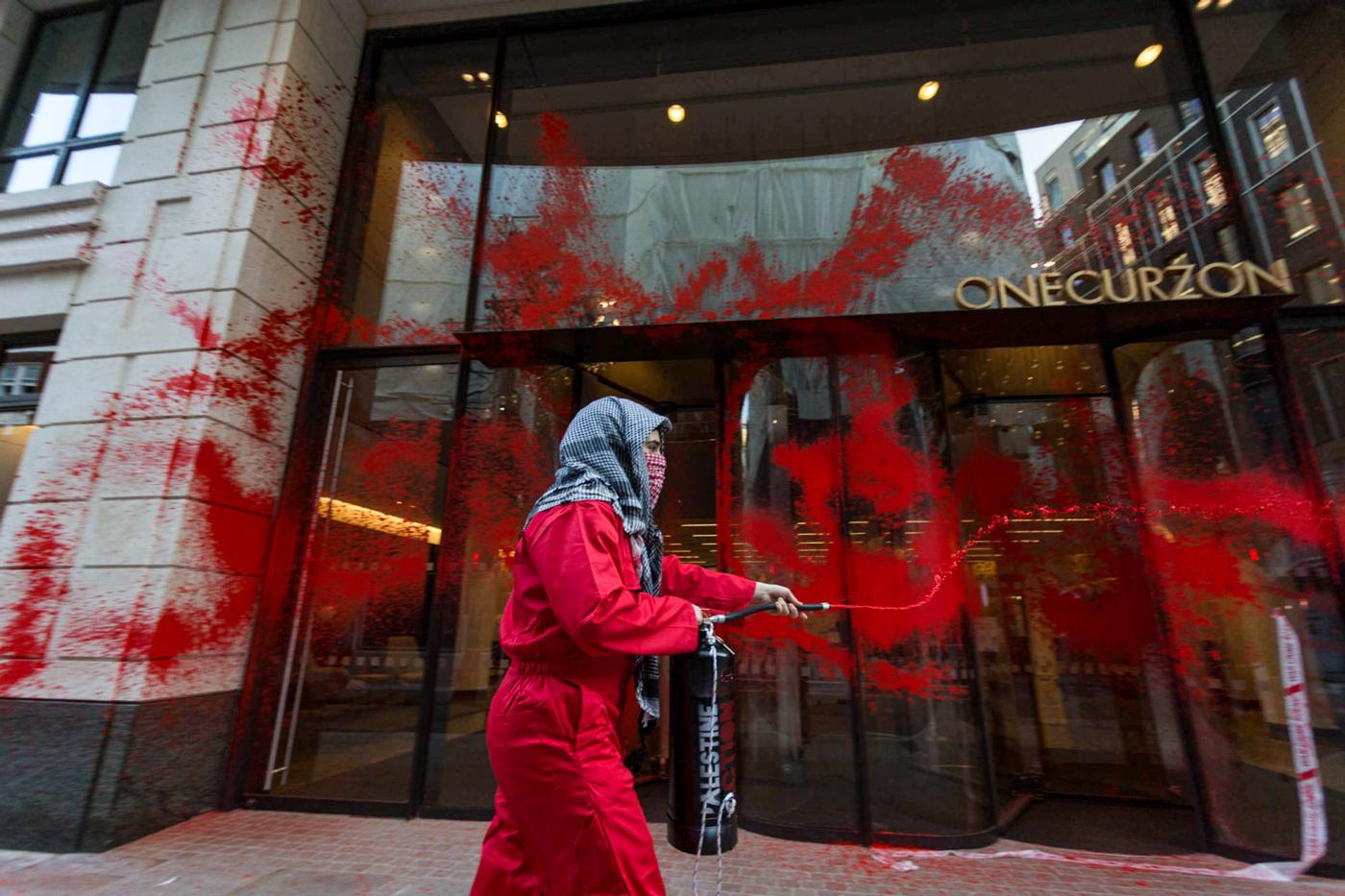CrimethInc., Jonathan Pollak
Human Rights Discourse Has Failed to Stop the Genocide in Gaza
An Anarchist from Jaffa on the Necessity of Anti-Colonial Strategies for Liberation
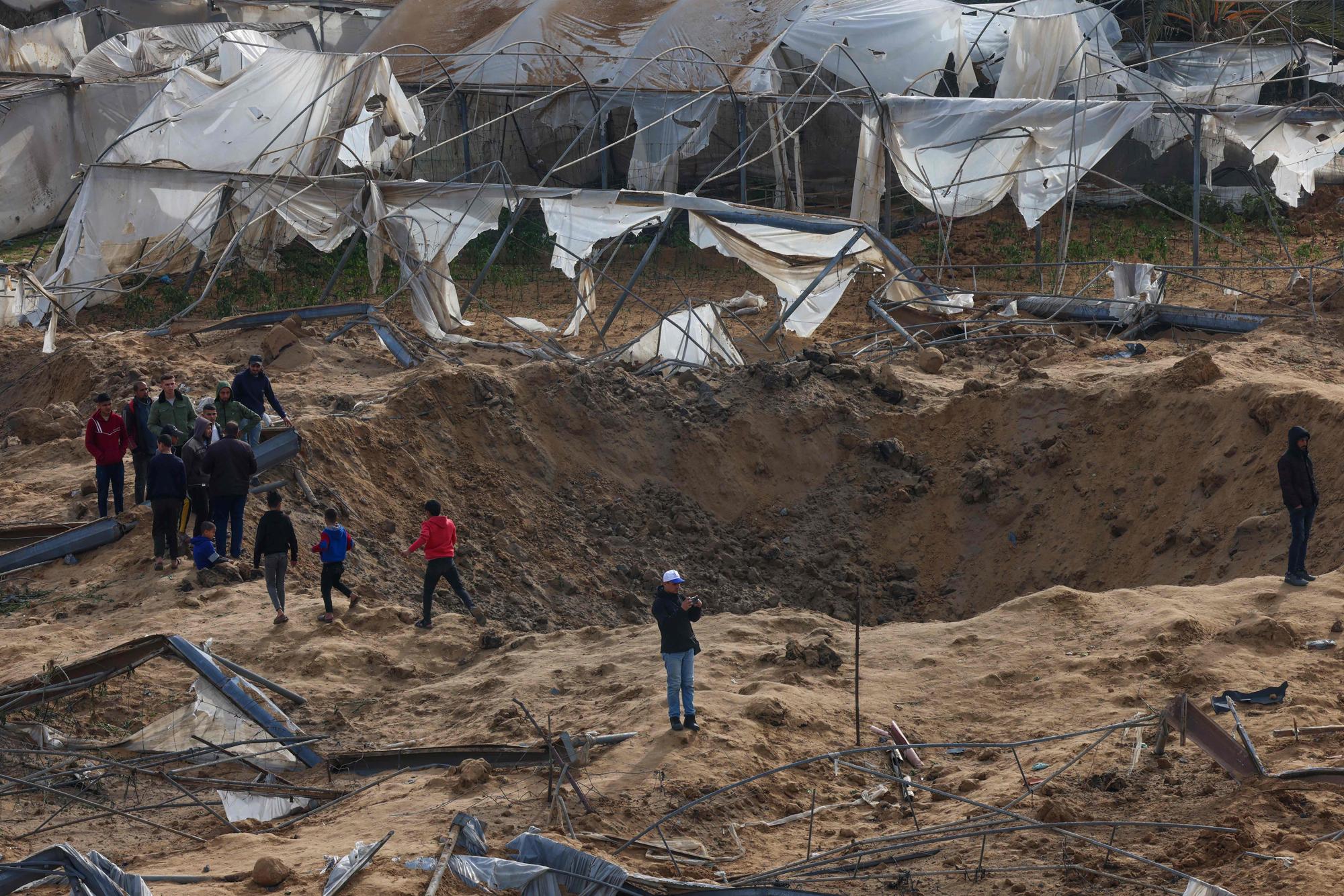
Four months into the assault on Gaza, the Israeli military has forced over a million refugees to the edge of the Egyptian border and is now bombing them while threatening to mount a ground assault against them. In the following text, Jonathan Pollak, a longtime participant in Anarchists Against the Wall and other anti-colonial solidarity efforts, explains why we should not look to international institutions or protest movements within Israeli society to put a stop to the genocide in Gaza and calls on ordinary people to take action.
A shorter version of this text was rejected by the liberal Israeli platform Haaretz—an indication of the diminishing space for dissent in Palestine and within Israeli society.
Human Rights Discourse Has Failed to Stop the Genocide in Gaza
We are now more than 120 days into the unprecedented Israeli assault on Gaza. Its horrific repercussions and our inability to bring it to an end should compel us to reevaluate our perspective on power, our understanding of it, and, most significantly, what we have to do to fight it.
Amid the spilled blood, the endless days of death and destruction, excruciating dearth, starvation, thirst, and despair, the ceaseless nights of fire and brimstone and white phosphors raining indiscriminately from the sky, we must grapple with the bare ugly facts of reality and reshape our strategies.
The officially reported fatalities—in addition to the many Palestinians who remain buried under the rubble and aren’t yet included in the official count—already amount to the annihilation of nearly 1.5% of all human life in the Gaza Strip. As Israel escalates its attacks on Rafah, it seems that there is no end in sight. Soon, the lives of one in every fifty people in Gaza will have been extinguished.
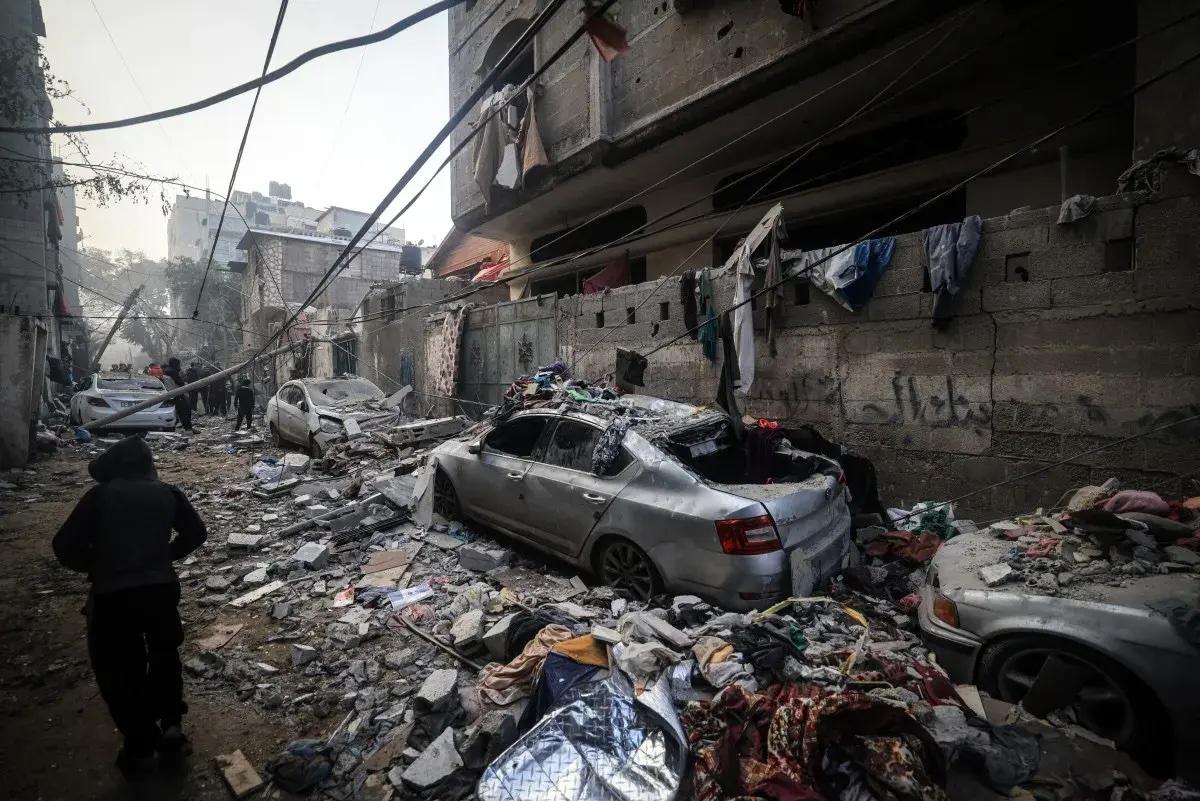
The Israeli military is inflicting an unprecedented toll of suffering and death on the 2.3 million people of Gaza, surpassing anything ever witnessed in Palestine—or elsewhere during the 21st century. Yet these staggering figures have not penetrated the thick layers of dissociation and disconnect that characterize Israeli society as well as Israel’s Western allies. If anything, the reduction of this tragedy to statistics seems to hinder rather than enhance our understanding. It presents a whole that obscures the specifics: the figures conceal the personhood of the countless individuals who have died painful, particular deaths.
At the same time, the unfathomable scale of the massacre in Gaza makes it impossible to comprehend through the stories of individual victims. Journalists, street cleaners, poets, homemakers, construction workers, mothers, doctors, and children, a multitude too vast to be narrated. We are left with faceless anonymous figures. Among them are more than 12,000 children. Probably a lot more.
Please pause and say this aloud, word by word: over twelve thousand children. Killed. Is there a way for us to take this in and move beyond the realm of statistics to grasp the horrific reality?
The cold blunt numbers also veil hundreds of obliterated families, many of them completely erased—sometimes three, even four generations, wiped off the face of the earth.
Overshadowed by these figures are more than 67,000 people who have been injured, thousands of whom will remain paralyzed for the rest of their lives. The medical system in Gaza has been almost completely destroyed; life-saving amputations are being carried out without anesthetics. The extent to which infrastructure in Gaza has been destroyed surpasses the Dresden bombings at the end of the Second World War. Nearly two million people—roughly 85% of the population of the Gaza Strip—have been displaced, their lives shattered by Israeli bombings as they shelter in the dangerously overcrowded south of the Strip, which the Israeli government falsely pronounced “safe,” yet continues to pummel with hundreds of 2000-pound bombs. The hunger in Gaza, which was created by Israeli state policy even before the war, is so severe that it amounts to famine. In their despair, people have resorted to eating fodder, but now even that is running out.
About a month ago, an acquaintance of mine who fled to Rafah from Gaza City after his home there was bombed told me that he and his family had already been forced to move from one temporary refuge to another six different times in their attempts to escape from the bombs. In despair, he said, “There is no food, no water, nowhere to sleep. We are constantly thirsty, hungry, and wet. I’ve already had to dig my children out from under the rubble twice—once in Gaza and once here in Rafah.”
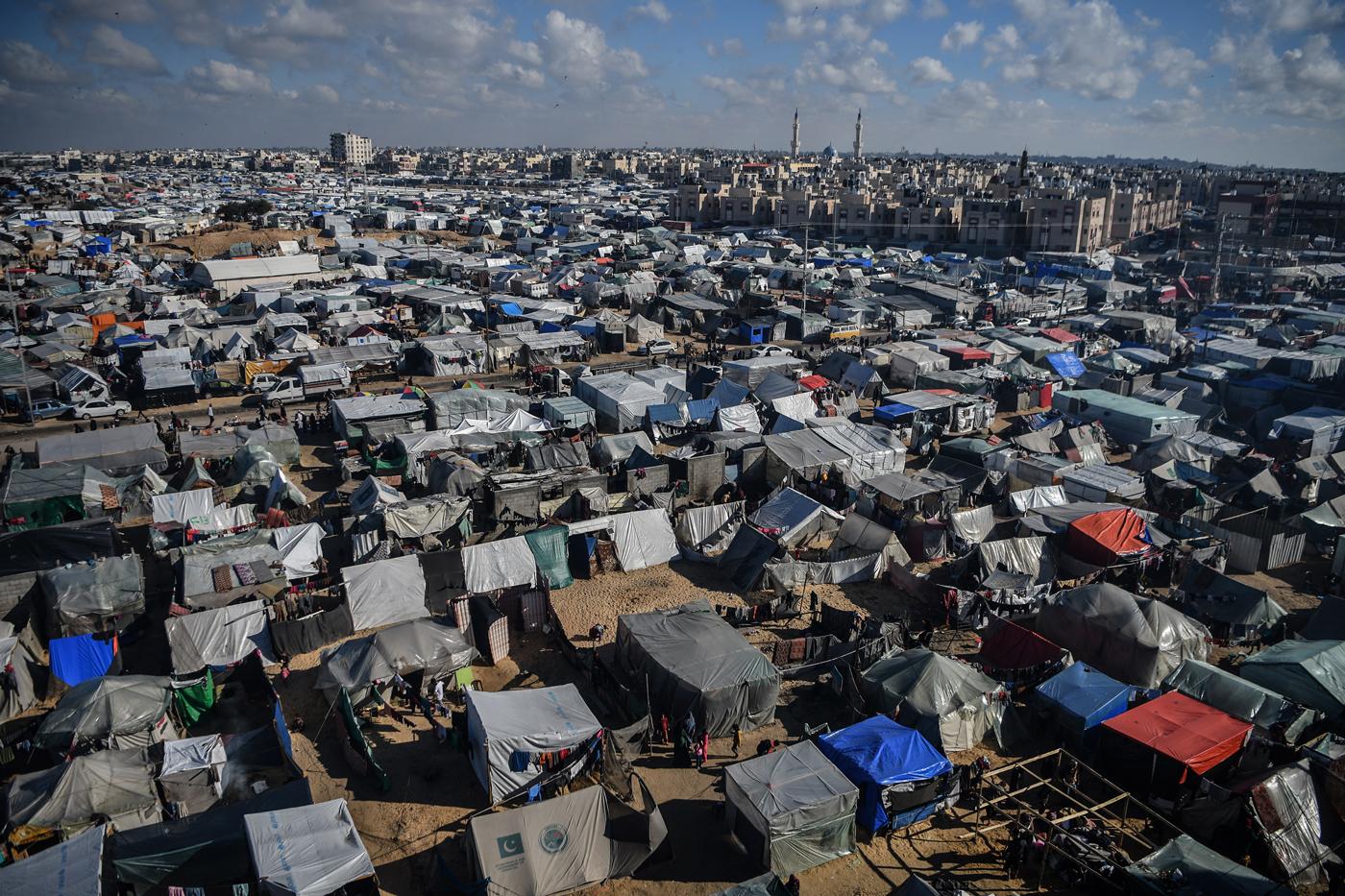
These rivers of blood must breach the walls of our apathy. If only time could stop long enough for all of us to process our grief. But it will not. It continues passing as more bombs fall on Gaza.
Decades of injustice have paved the way for this. Some 75 years have passed since the Nakba—75 years of Israel’s settler-colonialism—yet its defenders continue to deny the facts. Even after the the International Court of Justice (ICJ) asserted that there is indeed cause to fear that genocide is being committed in Gaza, the US and many of Israel’s other Western allies have effectively remained silent.
Israeli Prime Minister, Benjamin Netanyahu, called the court’s mere willingness to discuss the case “a disgrace that will not be erased for generations.” Indeed, the ruling is a disgrace. Despite everything being laid bare in plain sight, the court did not order Israel to cease fire. This is a disgrace to the court itself and to the very idea that international law is supposed to protect the lives and rights of those being crushed by the military force of nations.
It will undoubtedly be said that the law, by nature, is meticulous and that it considers the forest not as a whole but as individual trees. To that, we must answer that reality, facts, common sense must be above the law, not beneath it. Israel dedicates considerable resources to a legalism of the battlefield, intended to give cover to its murderous acts. This approach involves carving reality into thin slices of independently legally-approved observations and actions. A military target was present in high-rise X, justifying the deaths of over two dozen uninvolved civilians; apartment tower Y was the home of a Hamas-employed firefighter, legitimizing, according to the principle of proportionality, the decision to wipe out three neighboring families. But this practice cannot turn genocidal water into legitimate wine. This is legal gaslighting that shreds reality to pieces in order to conceal a pattern of indiscriminate mass murder.
If the slaughter of 1.5% of the population in four months is not genocide; if Israel’s acts are not deemed grievous enough for the court to order it to immediately stop the killing, not even in light of open incitement to exterminate Palestinians by prominent Israeli politicians and members of the press, not to mention Israel’s president and Prime Minister; when lack of punishment for such incitements and such acts is accepted rather than branded as genocide in the simplest of terms—then the words we use to describe reality have lost all meaning and we are in dire need of new language beyond the confines of legalese.
Leaving the butcher’s knife in the butcher’s hand—leaving Israel unhindered, unimpeded—means letting the slaughter in Gaza continue. This is the absolute ongoing failure of international law and the institutions entrusted with keeping it.
This failure passes on the responsibility of forcing an end to the ongoing catastrophe, so that it falls on the shoulders of civil society. This ought to compel us to move beyond the empty liberal paradigms of human rights, which have replaced liberation as the dominant discourse in leftist politics.
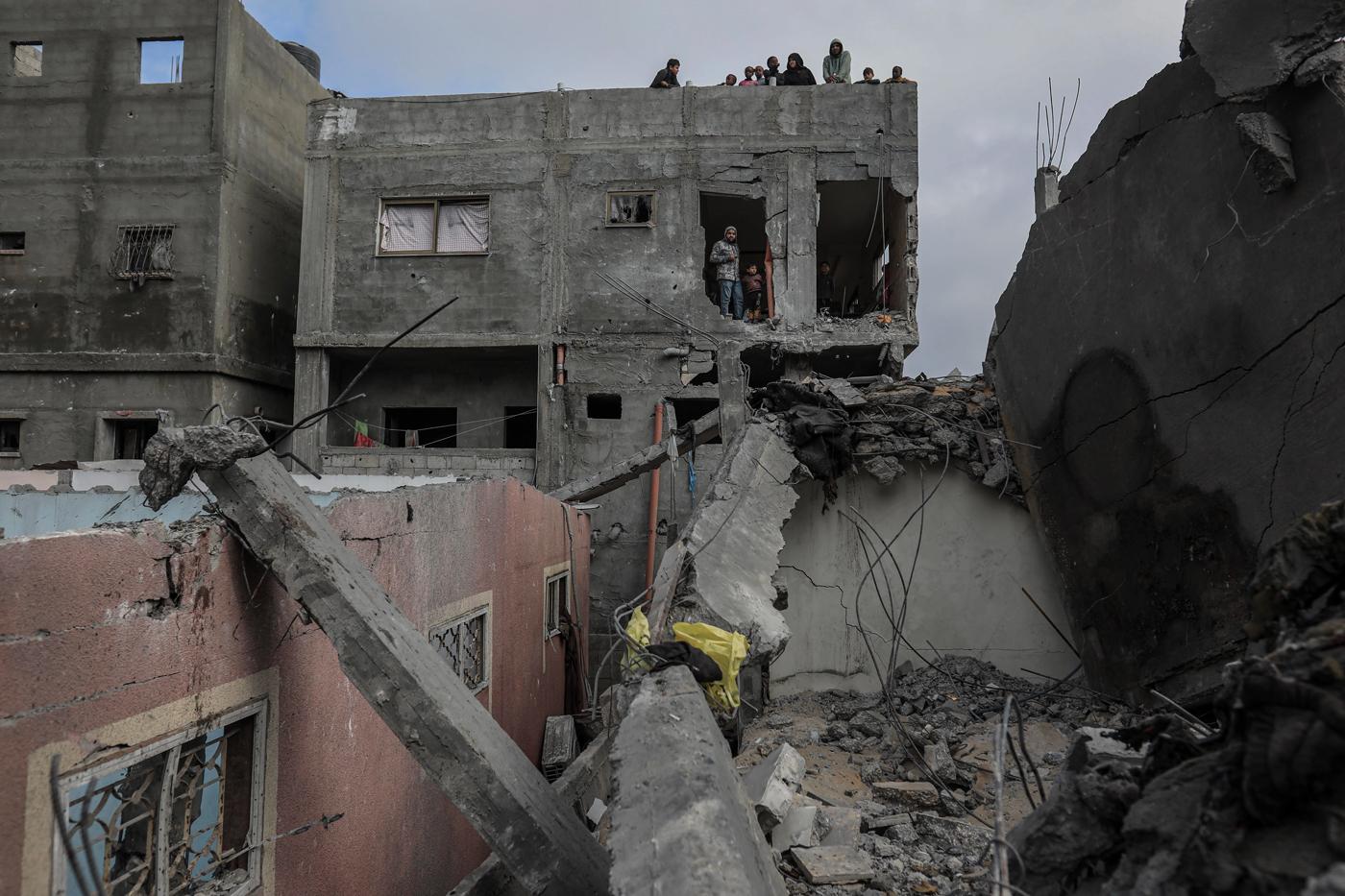
The Path Forward
The human rights discourse that has hijacked the political left in recent decades has drawn us away from a framework of liberation and effective action. It is now clear that we must track back from liberal thinking in order to reestablish strategies that disarm and deconstruct power. The moral complicity with Israel’s crimes that is represented by the ICJ’s refusal to order an immediate cease fire forces us to do this. It offers a convincing argument that we all need to break with the current failed system.
On the other hand, reality will not wait for us to figure things out. We cannot simply take our time and wait to take action until we have developed and popularized new narratives and conceptual frameworks. We have to use whatever means are available to us to act right now.
Does the ICJ offer us any tools we can use? the ICJ is considered the highest instance of international law. Although it has no independent enforcement mechanisms aside from the United Nations Security Council, its rulings and case law are considered the bedrock of international law jurisprudence, and they are often incorporated into the rulings of national courts on these matters. Despite having ordered very few measures against Israel or the ongoing genocide being carried out, the court did determine that there is considerable cause to believe that genocide is taking place.
Because the court did not take any real measures against Israel, it should be evident that the responsibility to act falls upon us and our movements. Fortunately, the ruling might also give us some tools to use in the here and now while we are developing new frameworks of liberation. One such example is a recent lawsuit at a California federal court aimed at ordering the US administration to halt military support to Israel. The case was dismissed on the grounds that US foreign policy is outside the court’s jurisdiction, but it did determine that Israel is plausibly committing genocide in Gaza on the basis of the ICJ ruling.
The legal case that governments must refrain from complicity in genocide is not unsubstantiated in US law, as well as in many other countries. A Dutch court recently ordered the government of the Netherlands to halt the delivery of parts for F-35 fighter jets that Israel is using to bombard the Gaza Strip. It might be plausible now to force more governments to impose arms embargos, sanctions, or other measures through national courts.
However, such strategies still reduce us to relying on so-called experts; they will not help us build movements. The genocide will not be stopped from within Israeli society. Pressure to do so must come from outside. It is now time for direct action and bottom-up efforts, like community-driven boycotts on Israeli goods, vendors who trade in them, Israeli cultural and propaganda exports, and anything else that feeds into the global boycott, divestment, and sanctions movement. The blockading of the port of Tacoma or the actions of dock workers around the world who refuse to load Israeli ships and cargo and transport arms to Israel are examples of how we might be able to move forward, building towards a proactive grassroots movement.
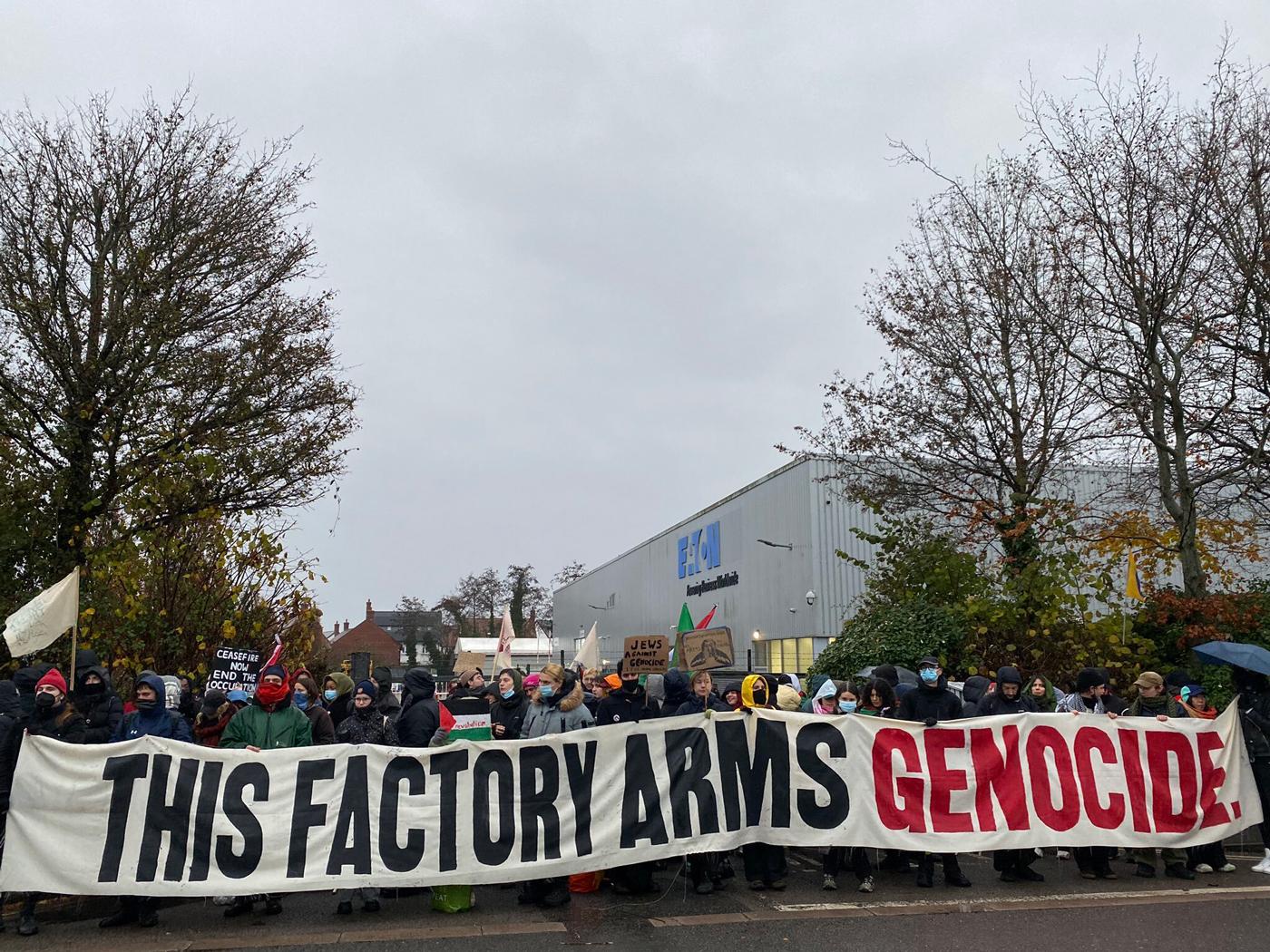
We must do everything within our power to stop the genocide that is taking place now, but it is important that we approach doing so as a step towards promoting Palestinian liberation and the dismantling of Israeli settler-colonialism. The portrayal of Palestinians as little more than victims at the mercy of Israeli repression is sometimes well intentioned, but it erases their personhood and agency. While we strive to bring Israel’s war machine to a halt, we must articulate that this is part of the struggle to end Israeli colonialism, and center Palestinians as the protagonists of that story.
The Roots of the Problem
Since before the establishment of the Israeli state, Israel has been a racist, colonialist society, premised on the notion that Israelis are fundamentally superior to Palestinians. This is the mainstream of Israeli political thought on both its right and so-called left wings. This is the thinking that motivated the mass dispossession of Palestinians that preceded the formation of the state, the ethnic cleansing of the Nakba in 1948, and various forms of apartheid and military rule ever since. In fact, there has only been one year in the history of Israel—1966—in which it did not impose a regime of military dictatorship over at least some of its Palestinian population.
Since long before the current assault on Gaza, the day-to-day reality of Palestinian existence under Israeli rule has been a continuous, ongoing terror in the midst of violence and uncertainty. Being Palestinian means passing through a checkpoint not knowing if you’ll be pulled out and arrested; it means settler mob violence; it means being thrown in jail under administrative detention, not knowing what for or for how long; it means a military raid in the middle of the night. It is all these things and worse, day after day, across a lifetime, across generations. One of the many things that happened on October 7 was that for a brief time, Israelis, too, as a society, experienced that kind of existential terror, that unsettling uncertainty and lack of security.
The events of October 7 have had such an impact in Israeli society that even today, most Israelis continue to center themselves as the chief victims in the narrative. One effect of this is the Israeli obsession with contextualizing the genocide in Gaza in relation to the violence on October 7. A common complaint about the ICJ decision among Israelis is that the court did not mention October 7 in its decision (in fact, it did mention it). At the same time, this demand for context is intended to suppress the larger context. Many people, including on the so-called left, express outrage when the current situation is put in the context of the Nakba, the 1967 occupation, or the ongoing siege. According to this upside-down logic, providing that context is perceived as genocidal against Israelis.
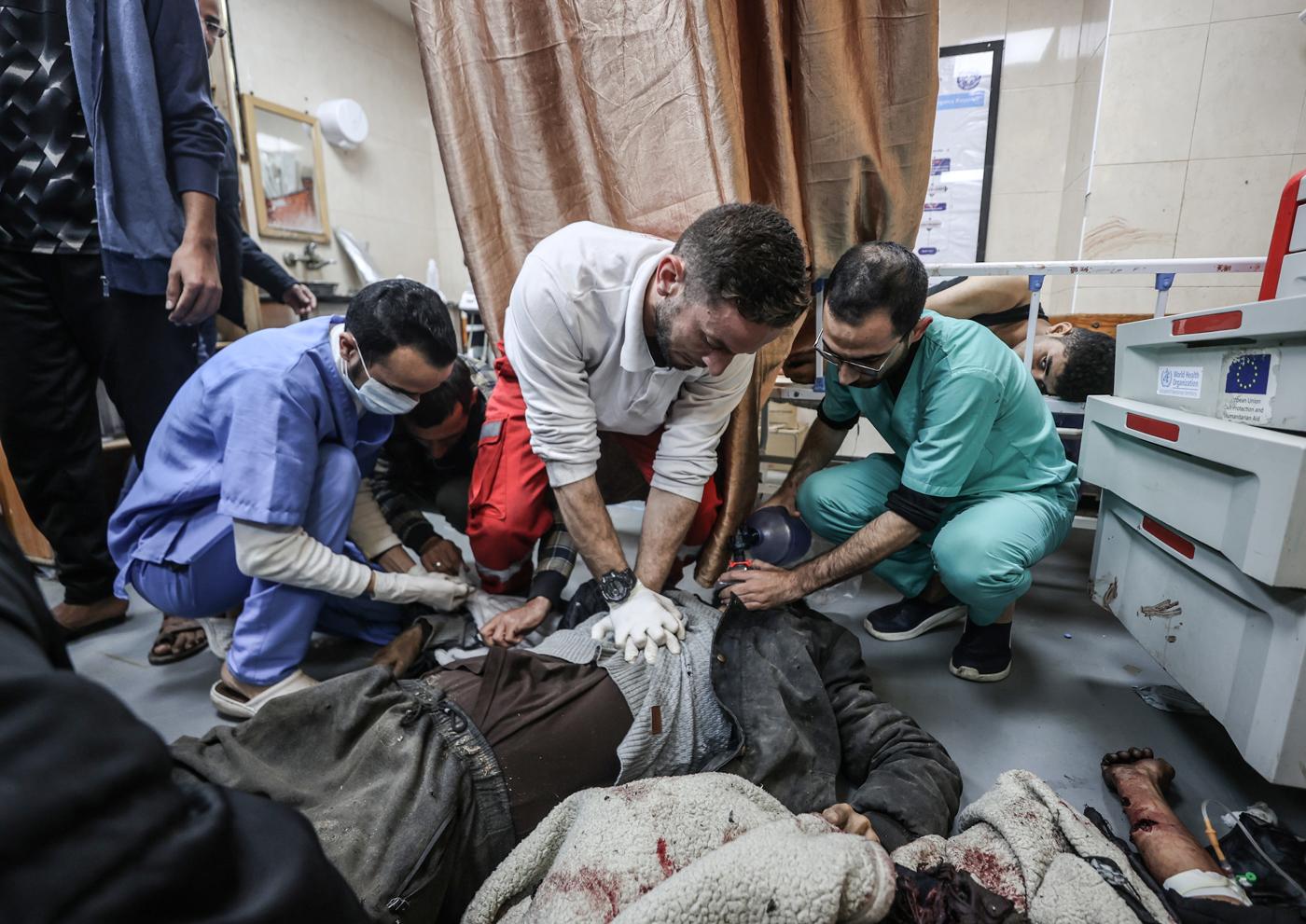
Israeli racism was prevalent before, but since October 7, undisguised genocidal discourse and open calls for actual genocide have become the norm. Within Israeli society, there is no movement of any real significance against the genocide. The protest movements that do exist are of negligible size and influence, or are concerned mostly with demanding a hostage swap deal, or are focused on internal Israeli issues—remnants of the pro-judiciary movement from before October 7.
The tiny isolated islands of resistance to the assault on Gaza and to the broader aspects of Israeli rule are so small that they should be understood as a rounding error, not a real force. The idea that a movement against colonialism and for Palestinian liberation exists within Israeli society is an illusion. To play a role in carving a path towards a future of real freedom, those who come from within this settler society will have to reject Israeli colonialism root and branch. We must bear in mind that as much as we might wish to be part of the solution, we will inherently remain part of the problem, as well.
In approaching the post-genocide future, we must ask how egalitarian ideas will survive in a reality ravaged by war, death, and destruction. It is not clear how we can envision and create a future that can transcend the trauma of the recent past, especially considering that though ruin and violence might decrease once the assault has stopped, Israeli repression will continue.
Nothing about the post-genocide future is clear yet, including what turns the Palestinian movement for liberation will take. That is for Palestinians alone to decide. What is obvious—and should have been clear long before this—is that those who oppose colonialism must not bask in the privileges that it bestows. The exact details of the path towards liberation are uncertain, but it is undeniable that those who want to help pave it can only play a part in doing so within the Palestinian movement. The responsibility of finding ways to do so, to transgress the boundaries of forced national identity that are in place precisely to prevent that, falls upon those who wish to support Palestinians and break out of the confines of colonialism.
